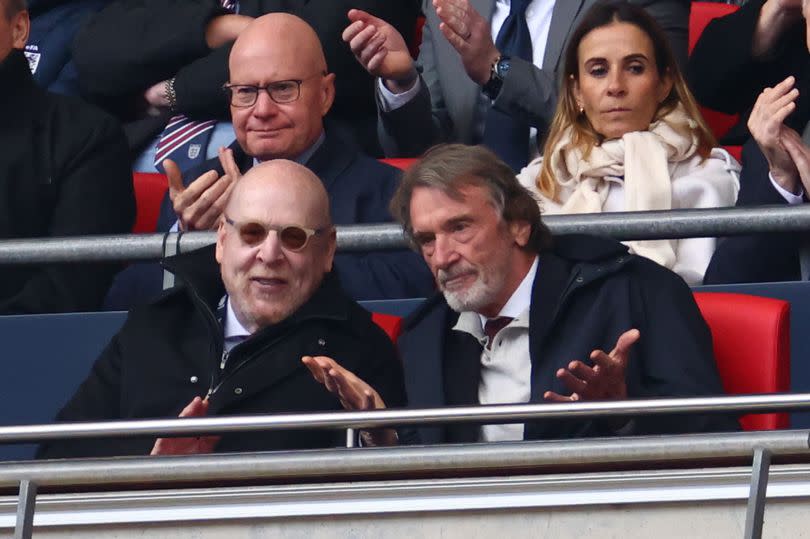Sir Jim Ratcliffe's Manchester United dream could turn into a nightmare before it's started

Sir Jim Ratcliffe is probably starting to feel that there might have been better times to become a minority owner of his boyhood football club. The 71-year-old finally got his seat in the boardroom in February but a project he described as his "biggest challenge" in sport has got considerably harder in the past couple of months.
When Ratcliffe initiated talks to invest in Manchester United the club looked to be on the right track under Erik ten Hag. The strategic review commissioned by the Glazers started at a time when Ten Hag was putting silverware back in the trophy cabinet and bringing Champions League football back to Old Trafford.
Fast forward to completion and the picture is very different. Ineos face a major decision over Ten Hag's future and are now so desperate to raise funds for a summer rebuild that they are considering selling almost every member of the first-team squad.
ALSO READ: United want three key signings with only four players not for sale
ALSO READ: Why United voted against plans to introduce a spending cap
Not only have performances this season highlighted weaknesses within the squad and on the coaching staff, but off-the-pitch Premier League rules are making life considerably more difficult for Ratcliffe. His plan would never have been to come in and splash his billions on new players in the style of Roman Abramovich. Now he couldn't even get close to that if he wanted to.
Ineos' first transfer window in charge of football operations at United will be compromised by the club's battles against the Premier League's Profit and Sustainability Rules (PSR), a position that has been weakened due to the absence of Champions League revenue.
That has forced the club to head into the window with an open mind around sales. As many as a dozen players could depart but offers will be considered for almost everyone in a bid to raise funds, although it would take a significant offer for some of the key assets in the squad to be sold.
United's PSR position should improve next season, when the £150million loss recorded in 2021/22 drops off the monitoring period, but the Premier League's attempts to introduce a spending cap for the 2025/26 season, which would anchor the total cost of a squad to the broadcast revenue earned by the league's lowest earners, will slow down the level of ambition that Ineos will be able to show.
United took a stand against that proposal at a Premier League meeting on Monday, a position driven by Ineos. The vote was always likely to pass but club officials believe it punishes United for generating record revenues and operating a self-sustaining business model.
It will restrict United's ability to spend those revenues on transfer fees and wages and will further complicate Ratcliffe's attempts to restore the club to the very elite of English and European football. On a playing field where clubs can spend what they earn, United have a natural advantage over almost all of their rivals given their commercial success but attempts to rein in spending and level that playing field will hurt them, especially in a period of flux.
When Ratcliffe got a set of keys to Old Trafford in February he described it as "certainly the biggest challenge in sport that we've undertaken" and that challenge is only getting harder with the rules in place as they are.
Ratcliffe knew it was about brains as much as brawn, however. While United would like to be able to flex their financial muscle, there is also an acceptance within the sporting department at Ineos that they can be cleverer than other clubs, which is why the footballing structure is being overhauled now.
If the spending cap rules survive a potential veto from the Professional Footballers' Association (PFA) and are passed at the Premier League's AGM in June, it will put even more of a focus on clubs who make smart decisions, which is an area United have lagged in over the previous decade, as Ratcliffe admitted in February.
"What you need are the foundations to be in a good place for Manchester United to be successful, which means that, from our point of view anyway, you need the right organisational structure," said United's minority owner.
"Which means not having a coach reporting to the chief executive, for instance, which is what they've got at the moment. You need the right organisation structure and that's not going to be too complicated.
"Then we need to populate all the key roles with people who are best in class, 10 out of 10s, and there’s clearly a lot of interest in those roles in Manchester United, because it’s one of the biggest, if not the biggest football club in the world but it's also a fantastic challenge to take it from a difficult place to hopefully where it should be at the top of the pyramid."
The appointments of Omar Berrada as chief executive and Jason Wilcox as technical director are evidence of Ineos getting those people in place, while the hope is Dan Ashworth's move from Newcastle to take up post as sporting director can also be finalised.
They have been attracted by the challenge at United that Ratcliffe speaks of, but there's no doubt that challenge is harder in this era than it would have been at any other point since 2013.

 Yahoo News
Yahoo News 
